| Muse in the Morning |
even at the risk of her own life,
even so, one should develop unbounded love
towards all beings in the world
Phenomena XVI: defending
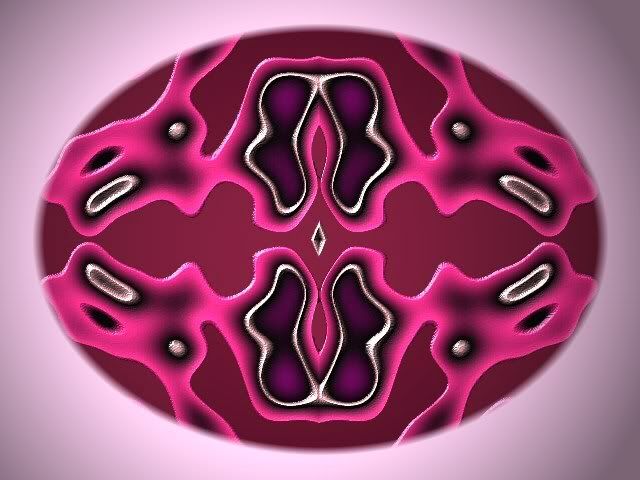 Shades of Gay
|

Aug 08 2008
| Muse in the Morning |
Phenomena XVI: defending
 Shades of Gay
|
Aug 07 2008
| Muse in the Morning |
–The Dhammapada
Phenomena XV: Love
 Transition
|
Aug 06 2008
| Muse in the Morning |
–Bhagavad Gita
Phenomena XIV: crying
 Tears
|
Aug 05 2008
| Muse in the Morning |
–The Dhammapada, 201
Phenomena XIII: hurting
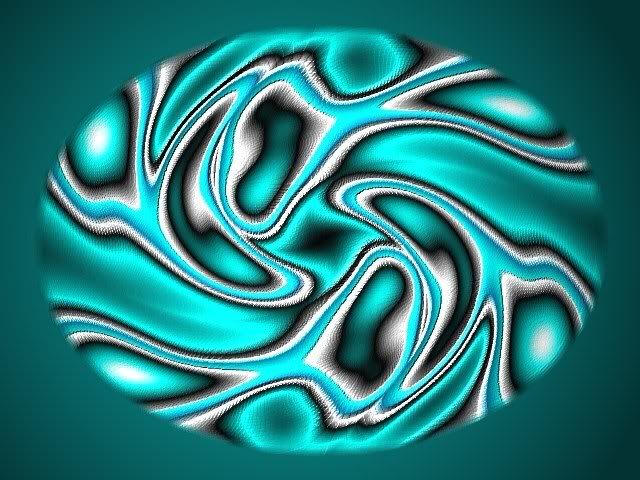 Ice
|
Aug 04 2008
| Muse in the Morning |
Below is the first graphic that I created that I called an egg. Before that my graphics were in what I call my sandpainting style.
Little did I know it would eventually intersect with an actual panda…and a poem. I posted them together on Su Lin‘s naming day (pandas born in captivity aren’t named until they are 100 days old, because of the likelihood that they will die.
The poem is a change of pace from my usual fare. And today is the day we are going to see Su Lin and her mom in our respective flesh. 🙂
Art Link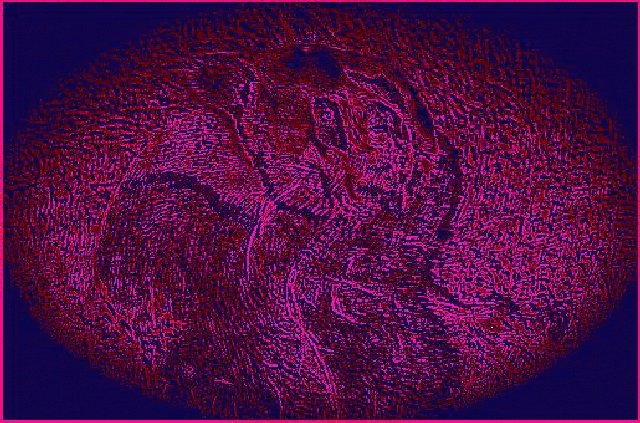 Red Panda
|
Aug 01 2008
| Muse in the Morning |
–The Dhammapada, 389
Phenomena XII: interacting
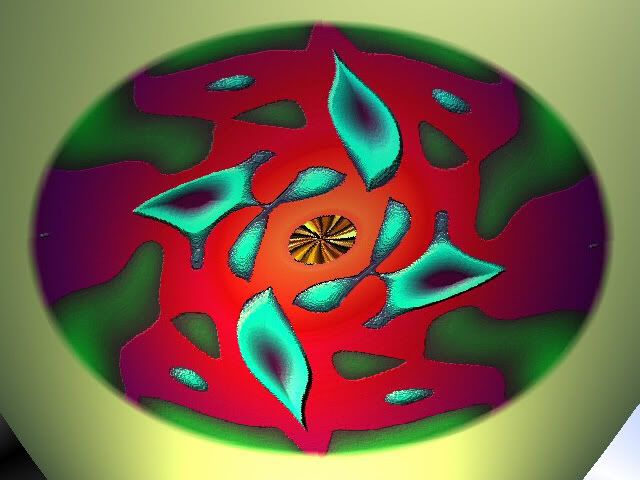 True Colors?
|
Jul 31 2008
| Muse in the Morning |
–Bhagavad Gita
Phenomena XI: uniting
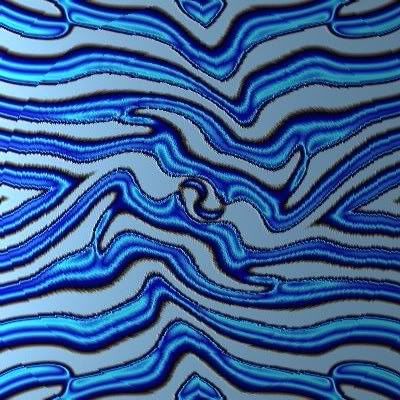 Flow Lines
|
Jul 30 2008
| Muse in the Morning |
What do I not teach?
Whatever is fascinating to discuss,
divides people against each other,
but has no bearing on putting an end to sorrow.
What do I teach?
Only what is necessary to take you to the other shore.
–Siddhārtha Gautama, The Dhammapada
Phenomena X: Separation
 Campfire
|
Jul 29 2008
| Muse in the Morning |
Phenomena IX: choosing
 Surfaces
|
Jul 28 2008
| Muse in the Morning |
Phenomena VIII: accepting
 Becalmed
|
Jul 25 2008
| Muse in the Morning |
–Bhikkhu Bodhi, Introduction to The Dhammapada
Phenomena VII: changing
 Seeking to Connect
|
Jul 25 2008
I’m nobody! Who are you?
Are you nobody, too?
Then there’s a pair of us – don’t tell!
They’d banish us, you know.How dreary to be somebody!
How public, like a frog
To tell your name the livelong day
To an admiring blog!
I know that Emily would forgive me for editing the last word. After all, Emily Dickinson died before the first bloguero, Marcel Proust, was born, and Marcel passed on before he was able to finish À la recherche du temps perdu, although it was 3,200 pages and had more characters in it than there are UID’s here. But that’s another essay, comparing people here to Proust’s characters. This essay is about the joy and peace of being nobody in Left Blogistan.
Some people want Nobody for President. But that’s another essay entirely, one about politics and disillusionment, disenfranchisement and the two party system. That’s not this essay. This one is about the joy of being nobody here at docuDharma.
Nobody is also the name of a police officer who disguises himself in a black outfit to fight crime in New York in the Teenage Mutant Ninja Turtles. But that’s another essay also. When asked who it was who did something particularly daring or courageous, witnesses in TMNT responded, “Nobody.” That nobody I’m not. I’m nobody here, and I’m happy being nobody.
When you’re nobody, you’re anonymous. And no one pays any particular attention to you. Maybe people read what you write, maybe they don’t. You’re clearly not a somebody. You don’t have any elevated status or special belonging or a posse or a gang of followers and disciples. You might have a few fans, maybe not. You don’t have a title. You don’t have responsibility. You come and go as you wish. If you feel like writing something, you do. If you don’t feel like it, you don’t bother. If you express your opinions, others might respond, or not. You’re nobody, so it doesn’t really matter what they say about what you wrote. An example: the other day at Orange a commenter opined that I was “astonishingly ignorant” about the law. If I were somebody, that dismissive slap would have hurt my feelings. Because I’m nobody, I suspected that the hyperbolic snap was a projection of the writer’s discomfort and misunderstanding. It doesn’t matter what’s said about nobody.
It’s far easier to thrive when you’re not being somebody. You’re just nobody. And you have nobody’s opinions, and tastes, and style, and preferences, and judgments, whatever they might be. And you express whatever you feel like however you like. And it’s hard for people to get mad at nobody, though occasionally some people try to. And people hardly ever insult nobody. It’s hard for nobody to be perceived as a threat or a rival or an enemy or someone to disagree with.
Nobodies can live happily by the Four Toltec Agreements:
“Be impeccable with your words”
“Don’t take anything personally”
“Don’t make assumptions”
“Always do your best”.
What most disrupts living beautifully by the Four Agreements imo is ego, which means being somebody or acting like you’re somebody or believing that you’re actually somebody. That uniqueness, that importance, that personality, that essential dualism tends to make people careless with their words when they speak or write. It tends to make people take things personally, in ways that hurt their feelings about who they are or what their life means or what they represent or where they’ve been or what they’ve done. It causes them pain. It creates suffering, between what one is and what one would like to be, between what one believes one is and others’ perceptions of what one actually is. The number of possible kinds of suffering is gigantic Being someone leads to making assumptions, usually about others. And sadly, being somebody convinces one that s/he can get by without trying really hard, because s/he is somebody already, without trying. But I digress.
Being nobody is really joyful and wonderful. And liberating. To participate in Flame Wars you have to be somebody. To threaten to leave a blog you have to be somebody. You have to be right, you have to see that others are wrong or mean or different from you in essential ways that hurt you. Only somebody can do or be that. If you’re nobody, what’s written doesn’t matter in a personal way, because you’re not somebody whose feeling will be hurt. You’re nobody. If you leave, you just go somewhere else. Months later, maybe, someone will ask whatever happened to you. Or not.
I’m concerned that the point of this brief essay might be too cryptic, too opaque, to blurred. I’m also concerned that it might seem strangely inarticulate. If there were a metaphorical knock on my door, I’d go and see who was there. There might be nobody there. Anyway, if there were somebody there, I’d have to say that I was sorry, but there was nobody home.
Maybe a parable will help. Although I suspect, it might make things even more confusing.
Once on Erev Yom Kippur, the rabbi and the cantor were on the Bimah. They prayed hard and knelt and bowed and beat their breasts and intoned, “I’m nobody. I’m nobody.” This public contrition and atonement was appropriate in that congregation. The shamus, a Jewish word for the Shul’s janitor, was moved by their intense prayers, and he too stepped onto the Bimah to kneel and beat his chest. The Cantor saw this, frowned, turned to the Rabbi and said, “So, look who thinks he’s nobody.”